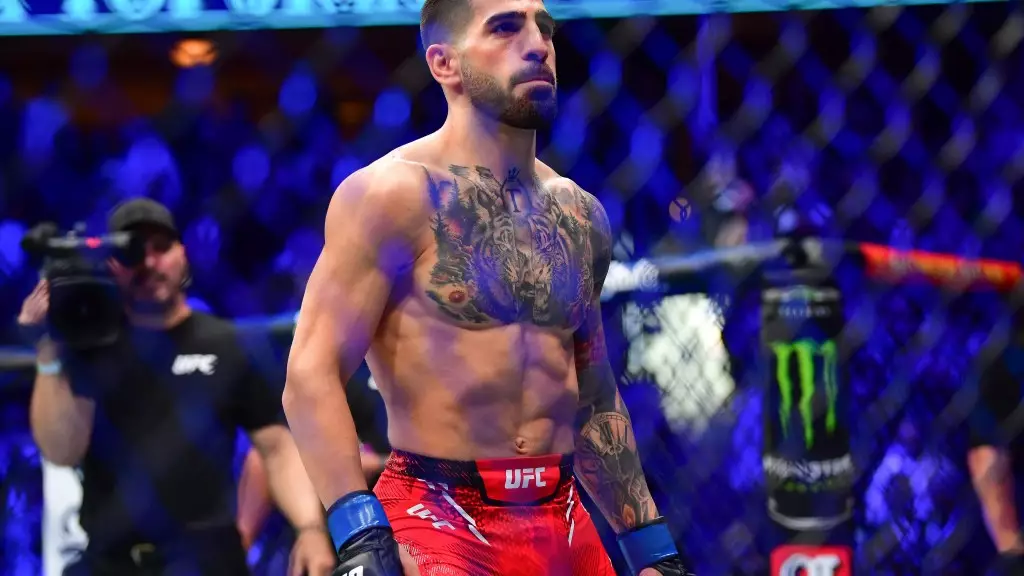Ilia Topuria has captured the MMA world’s attention with his incredible performances, notably his victories over featherweight champions Alexander Volkanovski and Max Holloway. With an unblemished record of 16-0, including eight fights in the UFC, Topuria has established himself as a dominant force in the featherweight division. However, after achieving such historical feats—most notably becoming the first fighter to finish Holloway by strikes—questions surrounding his future and motivation have arisen. Daniel Cormier, a respected figure in MMA, has pointed out that these landmark victories may have exhausted Topuria’s competitive drive, particularly as he hints at moving to a new weight class.
In a recent discussion, Cormier noted Topuria’s expressions of interest in transitioning up to lightweight to challenge elite competitor Charles Oliveira. This shift raises significant questions about Topuria’s desire to remain at the top of the featherweight division, especially after defeating two of its most formidable champions. Cormier theorized that the mental fatigue that can follow such monumental achievements might affect Topuria’s motivation to continue defending his title. “When you beat the best, there can be a little bit of fatigue… It’s mental fatigue,” Cormier articulated, shedding light on the psychological toll that high-level competition can impose.
The notion of stepping away from defending his title can be seen as a natural reaction to the weight of expectations that can accompany unprecedented success. Athletes often confront a recalibration of their goals after achieving what once seemed unattainable; Topuria’s ambitions may now lead him towards fresh challenges rather than defending against up-and-coming contenders.
Despite there being potential matchups against rising stars like Movsar Evloev and Diego Lopes in the featherweight class, the appeal may diminish for an athlete at Topuria’s level. Having faced and conquered established names, the prospect of fighting less renowned opponents can understandably lose its allure. As Cormier suggested, the mental strain of transitioning from battles against high-profile fighters to facing lesser-known competitors could lessen Topuria’s enthusiasm. Every athlete faces a unique set of motivations, yet nothing can replace the adrenaline of competing against the best.
Furthermore, the MMA landscape is ever-evolving, with new contenders constantly emerging. While Topuria’s departure from the featherweight division might shake up the rankings, it simultaneously opens doors for new narratives in the lightweight category where he will encounter different challenges and motivations, notably in a potential showdown with Oliveira.
As Ilia Topuria stands at a critical juncture in his career, the forthcoming decisions he makes will likely have far-reaching impacts on his legacy. While Cormier’s insights underline a profound understanding of the psychological landscape athletes navigate, Topuria’s path will depend on how he reconciles his past achievements with his future aspirations. Whether he continues to defend his title or seeks challenges in a new weight class, Topuria’s journey is a compelling narrative of ambition, fatigue, and the relentless pursuit of greatness. The sport of MMA will be keenly watching to see where his motivations lead him next.

